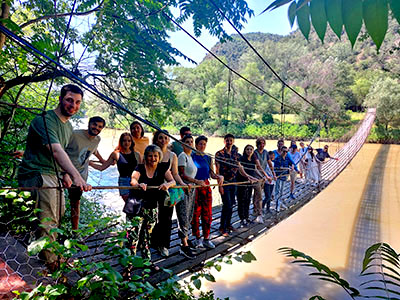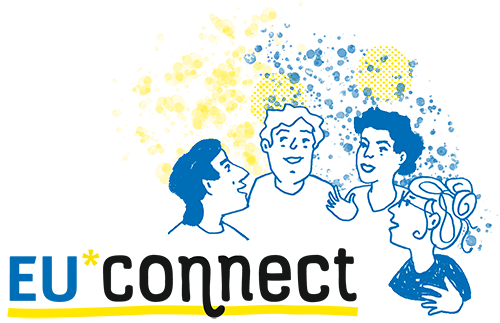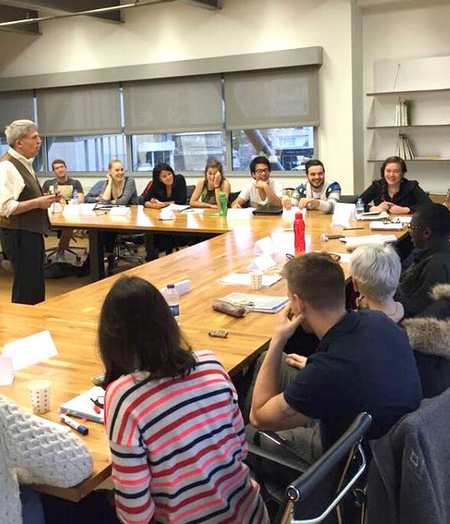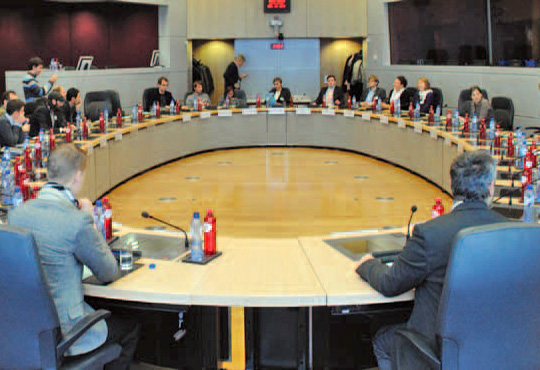
CIFE’s Short Programmes
|
The Summer University Programme

The summer courses are among the activities CIFE has been organising for the longest period of time – the first summer university took place in 1961, in Aoste, Italy.
Numerous other summer programmes have since then followed, taking place in various countries, in particular in Eastern Europe. Given the growing success of these sessions, and in response to demand from interested countries, CIFE has decided to set up a regular summer university programme.
Albania, Georgia, Romania and the Czech Republic are just some of the countries that have been top destinations for our summer universities for several years now.
The programme is dynamic and new projects respond to a constant need for information and reflection on topical subjects requiring in-depth knowledge. The CIFE, by virtue of its experience, its status in Europe and its desire to offer a stimulating academic framework, sees the organisation of unique meetings for exchange and reflection on themes linked to Europe as an extension of its mission. It coordinates these sessions on its own or in cooperation with one or more partners in each host country.

EU*CONNECT

EU*Connect is CIFE's interactive platform for introducing today's and tomorrow's European citizens to EU issues and enabling the exchange of experiences between young professionals and students from Ukraine, Moldova, France and Germany.
In 2022, CIFE launched EU*Connect with a two-fold objective: To provide EU expertise for young Ukrainians, and to make French and German participants aware of the particular challenges of Ukraine in the context of war, its quest for EU accession and reconstruction.
For EU*Connect, CIFE partners with the Institute for Public Administration and Civil Service (IPACS) of Taras Shevchenko National University of Kyiv and the Young European Federalists of JEF Berlin Brandenburg. The programme, funded by the Franco-German Youth Office, is 100% digital and free of charge.

Overseas University Programmes

The Overseas University Programme (OUP) is the umbrella term for CIFE‘s academic programmes with partner universities in China and the United States. These programmes have historically evolved from fruitful academic personal contacts of CIFE researchers into long-lasting institutional cooperation formats.
The partner institution in the United States is Texas A&M University. CIFE’s cooperation with Texas A&M began in 2011, having been established on personal grounds long before. The cooperation consists of the yearly Summer School Summer European Academy (SEA) and two former programmes, the Danube Summer Institute (DSI) and the European Semester. They offer undergraduate students of political science and related disciplines at Texas A&M the opportunity to spend several weeks in Europe and learn about the European integration process through lectures with experienced academic staff, through institutional visits and guided city tours.
CIFE‘s cooperation with Chinese universities includes the Yunnan University in Kunming and the University of Shanghai for Science and Technology. The cooperations date back to 2013 and currently comprises the EU-China Summer School in Germany (in cooperation with Trier University). Former programmes are the EU-China Summer School in Greece (in cooperation with the Hellenic Foundation for European and Foreign Policy), the EU-China Winter School in Germany (in cooperation with Trier University) as well as several virtual summer and winter schools that have taken place online during the COVID-19 pandemic.
Thes EU-China programmes aim at bringing Chinese students to Europe in order to make them acquainted with the fundamentals, principles and topics governing the European Union in a global environment. As China is becoming an increasingly important global player, the programmes established by CIFE foster the strengthening of relations between the two actors in the field of higher education.

Evening Course in Vienna

For over a decade, CIFE has been successfully running the evening course "Neuer Schwung für Europa" (New Impetus for Europe) being supported locally by the Figlhaus.
The aim of the evening course is to offer students, young academics and other interested parties qualified further training in the field of European integration.
Academics, experts, high-ranking civil servants or European politicians report from practice and stand for the quality of the teaching.
Duration: two semesters with final examination (at the end of each academic year and confirming successful participation).
|
|
|